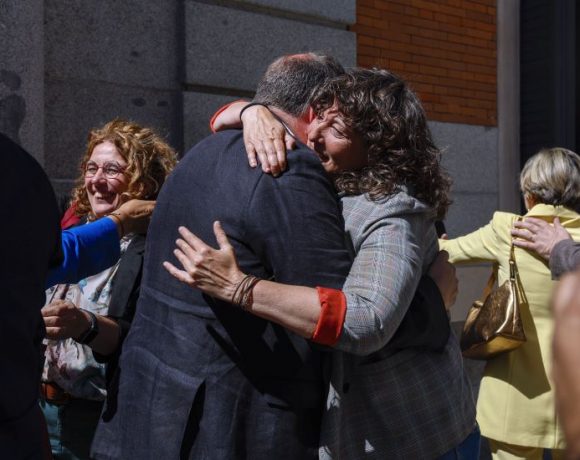
Spain’s Congress has passed a contentious Catalan amnesty law, clearing its final parliamentary hurdle before implementation. The law aims to halt legal actions against Catalan nationalists for their separatist activities, including the 2017 independence referendum and subsequent failed independence bid. The law narrowly passed with 177 votes in favor and 172 against, following a six-month parliamentary process initiated by Prime Minister Pedro Sánchez’s Socialist Party (PSOE). Although delayed by the opposition-controlled Senate, it could not be blocked entirely.
The amnesty will be published in the official gazette, giving judges two months to apply it. While potential legal challenges remain, they are unlikely to impede the law’s implementation. Around 400 Catalan nationalists, involved in separatist actions since November 2011, will benefit, including those prosecuted for organizing the illegal 2017 referendum. Police facing charges for voter assaults during the referendum are also covered.
The most notable beneficiary is Carles Puigdemont, former Catalan president, who led the 2017 secession attempt and has since been in self-exile in Belgium. Puigdemont’s party, Together for Catalonia (JxCat), and the Catalan Republican Left (ERC) secured the amnesty in exchange for supporting Sánchez’s coalition government. Puigdemont plans to return to Spain for an investiture vote in the regional parliament, despite lacking sufficient support to form a government.
Miriam Nogueras of JxCat described the amnesty as “necessary redress” rather than clemency. The PSOE, their coalition partner Sumar, JxCat, ERC, the Basque EH Bildu coalition, the Basque Nationalist Party (PNV), the Galician Nationalist Bloc (BNG), and far-left Podemos supported the law. The conservative People’s Party (PP), far-right Vox, and other regional conservatives opposed it. PP leader Alberto Núñez Feijóo condemned the amnesty as “political corruption,” accusing Sánchez of using it to secure his political position. Conversely, Artemi Rallo of the PSOE argued that the law, along with a 2022 pardon of nine jailed independence leaders, has “normalized politics in Catalonia.”
Picture Courtesy: Google/images are subject to copyright



